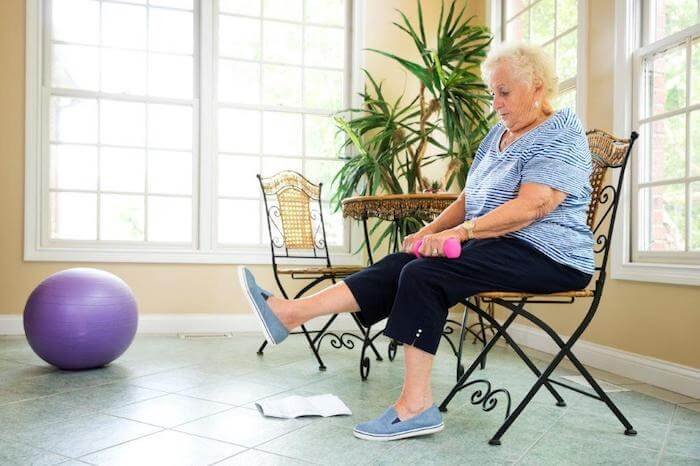When it comes to recovery, enhancing motivation in rehabilitation programs is key to achieving success. Motivation drives individuals to stick with their rehabilitation plans, face challenges, and work towards their goals. Without motivation, the journey can feel overwhelming, and individuals may struggle to see progress. This article explains effective ways to boost motivation in rehabilitation programs, making the process more engaging and rewarding.
1. Set Clear and Achievable Goals
One of the most effective ways of enhancing motivation in rehabilitation programs is to set clear and achievable goals. When individuals have specific targets to work towards, they can see their progress along the way. It’s important to break larger goals into smaller, manageable steps. This approach makes it easier to celebrate small victories, which can significantly boost motivation.

2. Create a Supportive Environment
A supportive environment plays a crucial role in motivation. Surrounding individuals with positive influences can help them stay focused on their recovery. Support can come from family, friends, or therapists who encourage and celebrate progress. When people feel supported, they are more likely to stay motivated and committed to their rehabilitation journey.
3. Use Positive Reinforcement
Positive reinforcement is a powerful tool for enhancing motivation in rehabilitation programs. Recognizing and rewarding progress, no matter how small, can inspire individuals to continue their efforts. This can be as simple as verbal praise or tangible rewards for reaching specific milestones. Celebrating achievements boosts confidence and reinforces the desire to keep moving forward.
4. Incorporate Fun and Engaging Activities
Incorporating fun activities into rehabilitation can significantly enhance motivation. When individuals enjoy what they are doing, they are more likely to stay engaged. Activities can include games, art, music, or physical exercises that allow participants to express themselves. The key is to create an enjoyable atmosphere where participants look forward to attending sessions.
5. Provide Education and Information
Understanding the rehabilitation process can enhance motivation in participants. Providing education about the recovery journey helps individuals see the importance of their efforts. When people know what to expect and understand the benefits of each step, they are more likely to stay motivated. Educating individuals about the potential positive outcomes of their hard work can be a powerful motivator.
6. Encourage Self-Reflection
Encouraging self-reflection is another effective strategy for enhancing motivation in rehabilitation programs. When individuals take the time to think about their feelings, progress, and goals, they can gain a clearer understanding of their journey. Journaling or group discussions can facilitate this process, helping participants identify their motivations and the reasons they want to recover. Self-reflection fosters a deeper connection to their goals and enhances their commitment.
7. Foster Peer Support and Connections
Creating opportunities for peer support is essential for motivation in rehabilitation. When individuals connect with others who share similar experiences, they can find encouragement and understanding. Group therapy sessions, support groups, or shared activities can help foster these connections. The bonds formed in these settings can provide a sense of belonging, making the rehabilitation process feel less isolating.
8. Personalize the Rehabilitation Experience
Personalizing the rehabilitation experience is crucial for enhancing motivation. Everyone’s journey is different, and what works for one person may not work for another. Tailoring rehabilitation programs to meet individual needs and preferences can make the experience more relevant and engaging. Participants are more likely to stay motivated when they feel their program reflects their personal goals and interests.
9. Involve Family Members
Involving family members in the rehabilitation process can greatly enhance motivation. Family support can provide encouragement and accountability, making it easier for individuals to stay on track. Family members can attend sessions, participate in activities, and celebrate successes together. When individuals know their loved ones are invested in their recovery, they may feel more motivated to succeed.
10. Track Progress and Celebrate Achievements
Tracking progress is essential for enhancing motivation in rehabilitation programs. When individuals can see how far they have come, it boosts their confidence and reinforces their commitment to recovery. Regularly reviewing progress helps participants identify areas of improvement and recognize their accomplishments. Celebrating these achievements, no matter how small, creates a sense of fulfillment and motivates individuals to continue their efforts.
Conclusion
Enhancing motivation in rehabilitation programs is vital for success. By setting clear goals, creating a supportive environment, and incorporating fun activities, individuals can stay engaged in their recovery journey. Positive reinforcement, education, and peer support also play essential roles in boosting motivation. Personalizing the rehabilitation experience and involving family members can further strengthen motivation. By tracking progress and celebrating achievements, individuals will feel empowered to overcome challenges and reach their goals.











